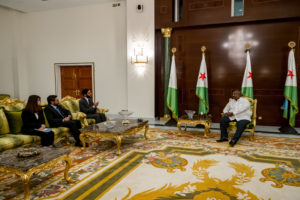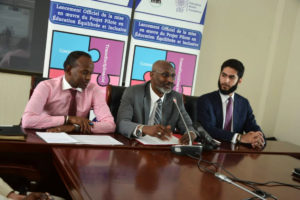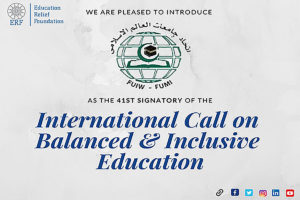Last week, ERF was in Kampala, Uganda, to introduce the concepts of Balanced and Inclusive Education (BIE), to overcome problems of exclusion in education and identify strategies to contextualise the global guide of ethics, principles, policies and practices on BIE. A two-day National Dialogue on the Contextualisation of the Global Guide on Ethics, Principles, Policies and Practices on Balanced and Inclusive Education in Uganda, was co-hosted by the National Curriculum Development Centre (NCDC), UNESCO Uganda, and ERF.
ERF President, Sheikh Manssour Bin Mussalam, presented the four pillars of Balanced and Inclusive Education and emphasized the need to make room for diversity. With the purpose of exchanging knowledge, expertise, and experience, the two-day meeting came up in at a critical moment for Uganda, as the country is currently devising its new inclusive education policy.
The attendees included over 150 government officials, policymakers, and personnel from the ministry of education and its agencies, as well as practitioners. In order to create awareness and ensure a clear understanding of the topic, participants were divided in four groups to discuss each one of the pillars of Balanced and Inclusive Education – intra-culturalism, trans-disciplinarity, dialecticism, and contextuality.
After a thorough discussion, the four groups concluded that Uganda needs a firm commitment to engaging all the public, especially students and teachers. Overall, the general consensus was that the Ugandan educational system has been adapted to the genuine local context of the country. Nevertheless, it still needs a better and more contextualised curriculum able to encourage conversations, solve problems and aide critical thinking.




